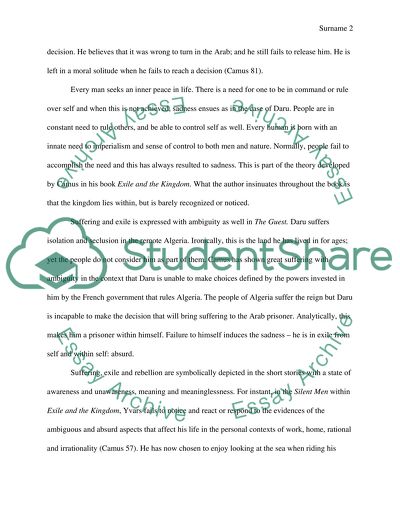Analysis of Exile and the Kingdom by Albert Camus Essay. Retrieved from https://studentshare.org/literature/1644929-analysis-of-exile-and-the-kingdom-by-albert-camus
Analysis of Exile and the Kingdom by Albert Camus Essay. https://studentshare.org/literature/1644929-analysis-of-exile-and-the-kingdom-by-albert-camus.


